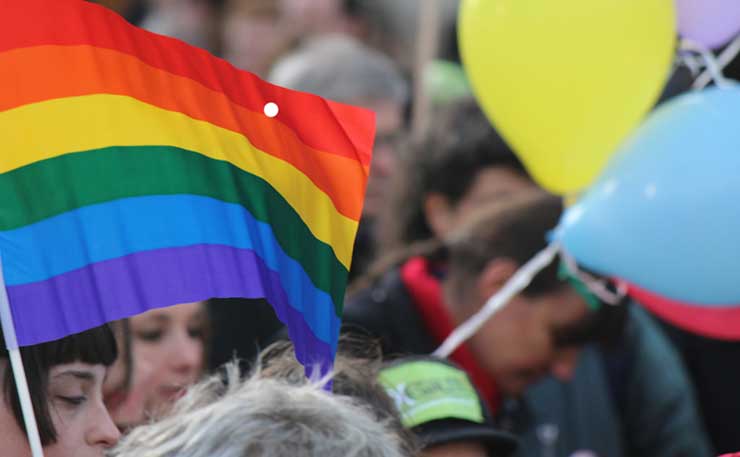The conservative response to the Safe Schools program suggests that a free society is only a good thing when it responds the way you want it to, writes Angus Reoch.
The united opposition to the now-ubiquitous Safe Schools programme by an unending run of talkback callers, media personalities, LNP politicians, religious authorities and conservative organisations proves what philosophers have known for a long time: not everybody actually likes living in a free society.
It was understood by philosophers from Hobbes to Hegel that not everybody is prepared to agree to the costs of freedom in order to attain its benefits. Few understood this better than Jean-Jacques Rousseau, who despite authoring The Social Contract – and with it Western liberal democracy as we know it – understood that any kind of social unity would be fractious at best.
Rousseau understood that with society’s opposing viewpoints and many contradictions, the only unifying force could be the ‘general will’. This term sounds quite archaic in today’s political terminology, yet it is central to our conception of democracy.
The general will is a concept we frequently rely upon in order to give our collective decisions legitimacy, to impose laws on those who might otherwise resist them or even exit the social contract. It stems from the popular legitimacy that liberal democratic regimes are supposed to hold: even if you may disagree with a particular action, you cannot disagree with the will of the people in-and-of-itself.
While we sometimes engage in this with referendums, more commonly it is the support which leaders enjoy when making certain decisions. Kevin Rudd’s ‘Sorry’ speech and Malcolm Turnbull’s rescinding of Tony Abbott’s knights and dames are some examples; certainly the National Broadband Network has become an imperative in the eyes of the public.
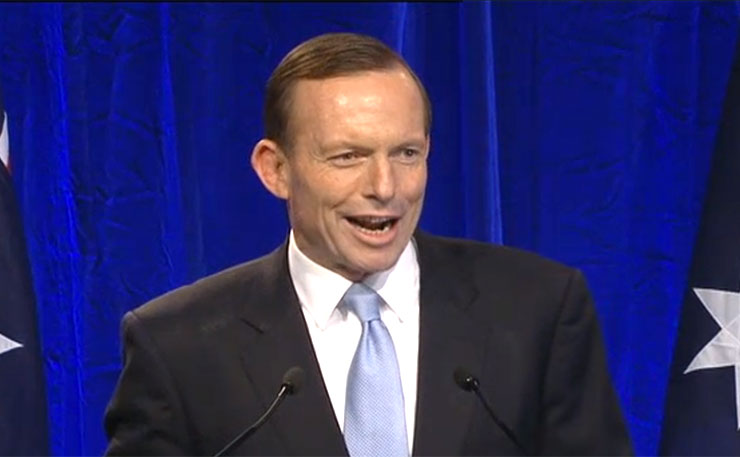
A more historical example is President Eisenhower forcibly de-segregating American schools in the South. There was no vote for any of these decisions, but all knew them to be legitimate.
These are justifications which are so commonplace it feels unusual to comment upon them. We respect the mandate of a particular government because they were elected through a political process which, no matter how flawed, we regard as legitimate.
Opposition to these laws is frequently derided as backward-looking or against our national interest, until it affects one’s own community. One suspects that those who rail against Safe Schools, claiming it disturbs the right of families, individuals and religious freedom, are largely the same conservatives who utilise the ‘love it or leave it’ logic to migrant communities, minorities and refugees, as soon as any marginal group wishes to practise lifestyles that are not sufficiently white-bread and meat-pie enough for the cultural majority.
The rugged individualism that theoretically underpins the conservative mindset quickly dissipates into a wishy-washy collectivism as soon as it gains power and authority.
Nonetheless, arguments remain: that it violates the authority of the family to raise their children a certain way, that it interferes with religious freedom, is somehow racist to people from different cultures (presumably because all gay Australians are white), or that they do not trust teachers with such weighty topics.
At a purely philosophical level, what is most puzzling is that people presume that their opinion actually matters. Do these would-be educators complain about the maths and geography curriculum as well? How is Safe Schools any more ‘weighty’ than history, which literally shapes the worldview of all young Australians?
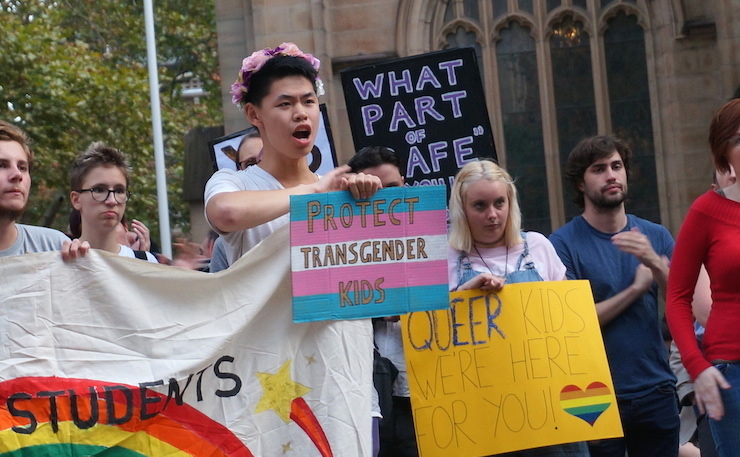
Rousseau could not have anticipated propaganda and thought-control, so consider yourselves free to form any opinion you wish. But the general will cannot be opposed by anybody’s mere opinion. In perhaps his most infamous phrase, those who resisted the will of the republic could not act against it: they would be ‘forced to be free’. The chains of freedom will be bound, and despite what goes on inside your head, you will march with the rest of the community, despite differences in opinion between yourself and Jean-Jacques.
So yes, if you are really determined – though your child must receive state-sponsored education – even Rousseau agrees that you can personally choose to raise your child to be a bigot, or more probably you can allow them to become that way through parental neglect.
But what may not be countered philosophically can be done so sociologically. Bullying, homophobia and transphobia have severe social costs, and even if they are of no importance to your family, they can be for other families.
LGBT suicides are not private, individual matters alone. Nor is their homelessness rates, estimated at 25 per cent, as people have been abandoned by their own family, destitute and at extreme risk of assault and illness.
Not doing something is producing huge social and human costs, and the Government’s role is precisely to address this. If the national suicide or even unemployment rate was the same, we would expect the Government to step in. It is pure ignorance and unadulterated contempt which suggests anything to the alternative that LGBT youths face a continual and on-going crisis which deserves a Government response.
There are legitimate criticisms of Safe Schools as a public programme, which is no more infallible than any other. Yet the overwhelming conservative response is not due to it being potentially misapplied or overzealous, but to the notion that it exists at all.
These protestations about its social engineering almost hilariously miss the point: of course it is social engineering. Social engineering is what liberal, technologically advanced societies have been doing from the very beginning. It is something which we endorse every day of our lives, when we ask why people aren’t taught this, or understand that.
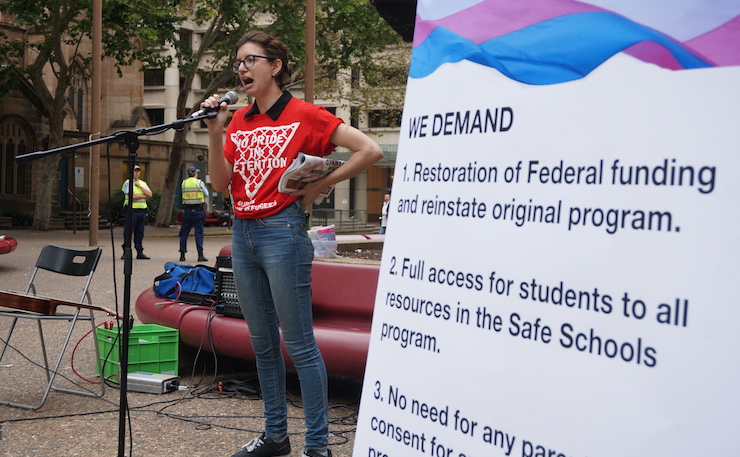
Whenever we say ‘X policy will produce Y result’, we are, in effect, social engineers.
Proponents of corporal punishment will refer to the deference it creates towards elders. Studying society and culture should create tolerance for and understanding of others. When religious groups advocate curriculums which respect our supposed Judeo-Christian heritage, they do so because they want the population to conform to their understanding of what European cultural heritage is.
Indeed, alternative identities, such as the stereotypical conservative Muslim, are so threatening to this perception because they actively deny the centrality of the white, liberal Australian personhood which we engineer so well. Scratch any would-be defender of cultural or religious freedom and you’ll find a social engineer par excellence.
There is wiggle room for a position that argues that if bullying is the problem, then why cannot schools deal with the problem themselves through strict anti-bullying policies? What is the need for all this gender-fluidity left-wing cultural Marxist nonsense?
Aside from the fact that Safe Schools is an opt-in programme, entirely up to the discretion of schools themselves, bullying is a pervasive phenomenon which is difficult to stem by ‘cracking down’ on it.
If the conventional wisdom is that it’s up to schoolchildren themselves to stop bullying, to be a conscientious objector, then why not give these kids some extra support? Most bullying takes place outside of the purview of an authority figure, and is likely done out of unquestioned ignorance rather than genuine malice.
Programmes like Safe Schools are integral because they intervene at this level, where no teacher possibly can. If we understand this, it is not our right but our duty to teach children about the hurt that these forms of bullying and oppression can cause.
Some opponents have offered the suggestion that Safe Schools should not just pertain to LGBT issues – what about ending all forms of bullying? This should be a noble sentiment, and is where religious groups themselves have an important part to play in generating ethical awareness into the youth.
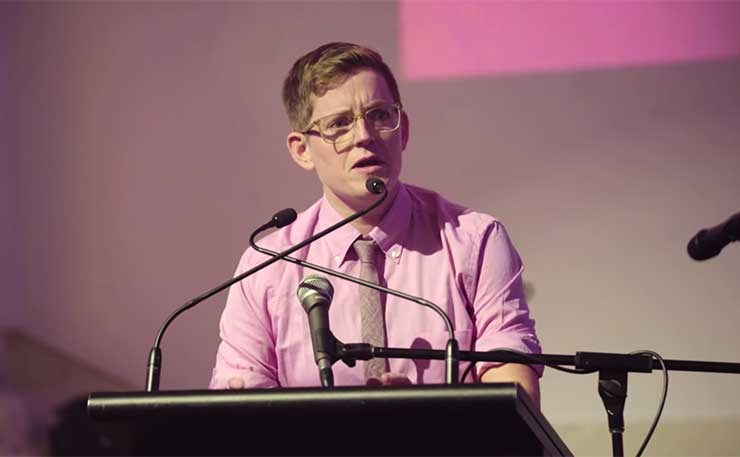
Unfortunately, history has shown that the ethical message of ‘do good to all’ – something which has been taught for a long time – has not lived up to its promise, and indeed often justifies violence when some are perceived as less equal than others.
More anti-bullying programmes – against racism, sexism, ableism, being mean in general – would of course be very welcome, but they do not undermine the need for specific, secular protection for the LGBT community which Safe Schools attempts to provide.
As a society we face collective issues and must solve them collectively. Appeals to be left alone by the forces of government are naïve at best, and dishonest at worst.
The same forces who would gladly use the might of the state to shove down our throats their noxious anti-woman, anti-LGBT and often racist doctrines, Republican Party style, are now complaining that they no longer get to do so.
Rousseau understood that freedom is a difficult thing to accept. He should have added that for some, freedom for all is even worse.
Donate To New Matilda
New Matilda is a small, independent media outlet. We survive through reader contributions, and never losing a lawsuit. If you got something from this article, giving something back helps us to continue speaking truth to power. Every little bit counts.

